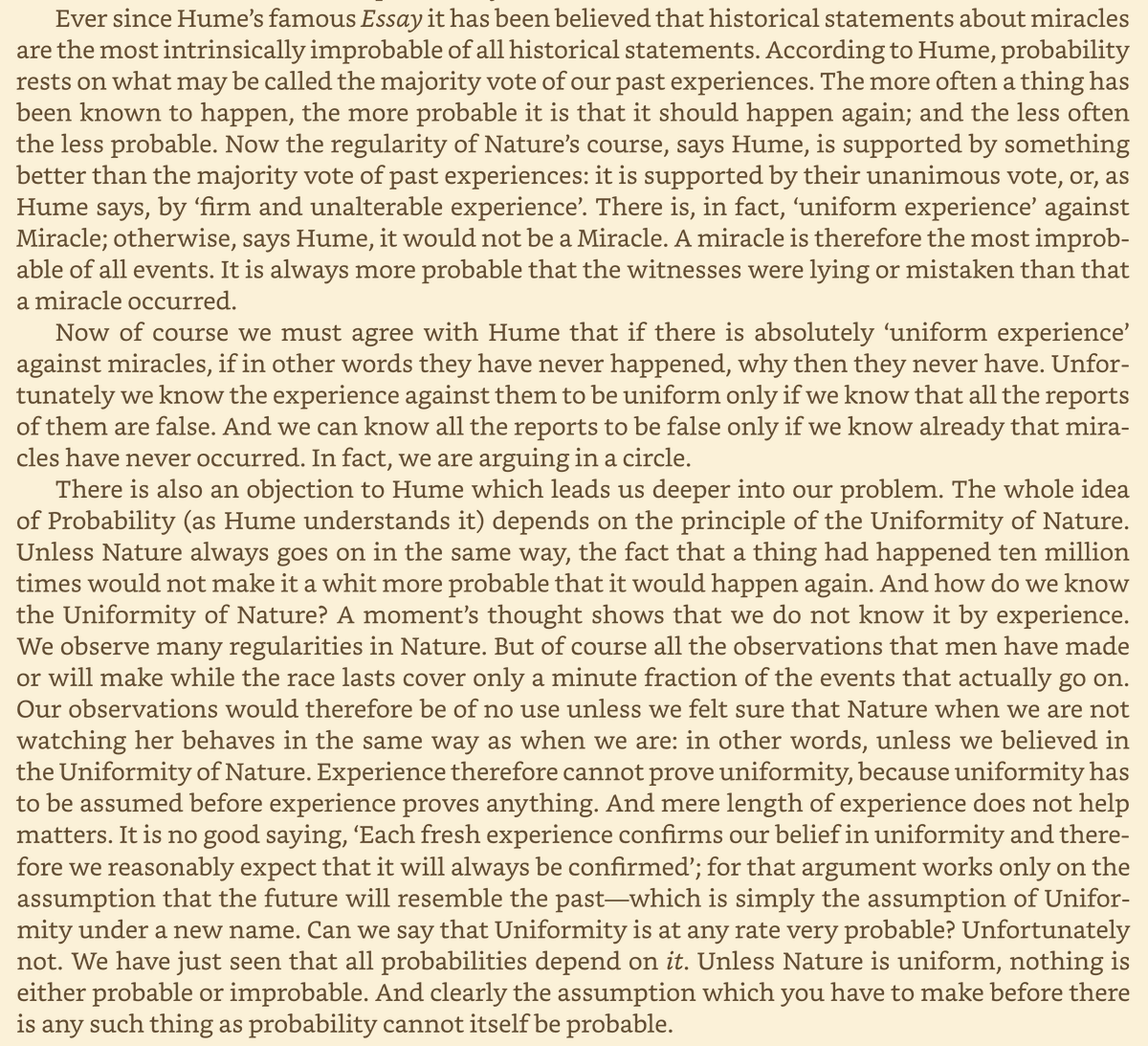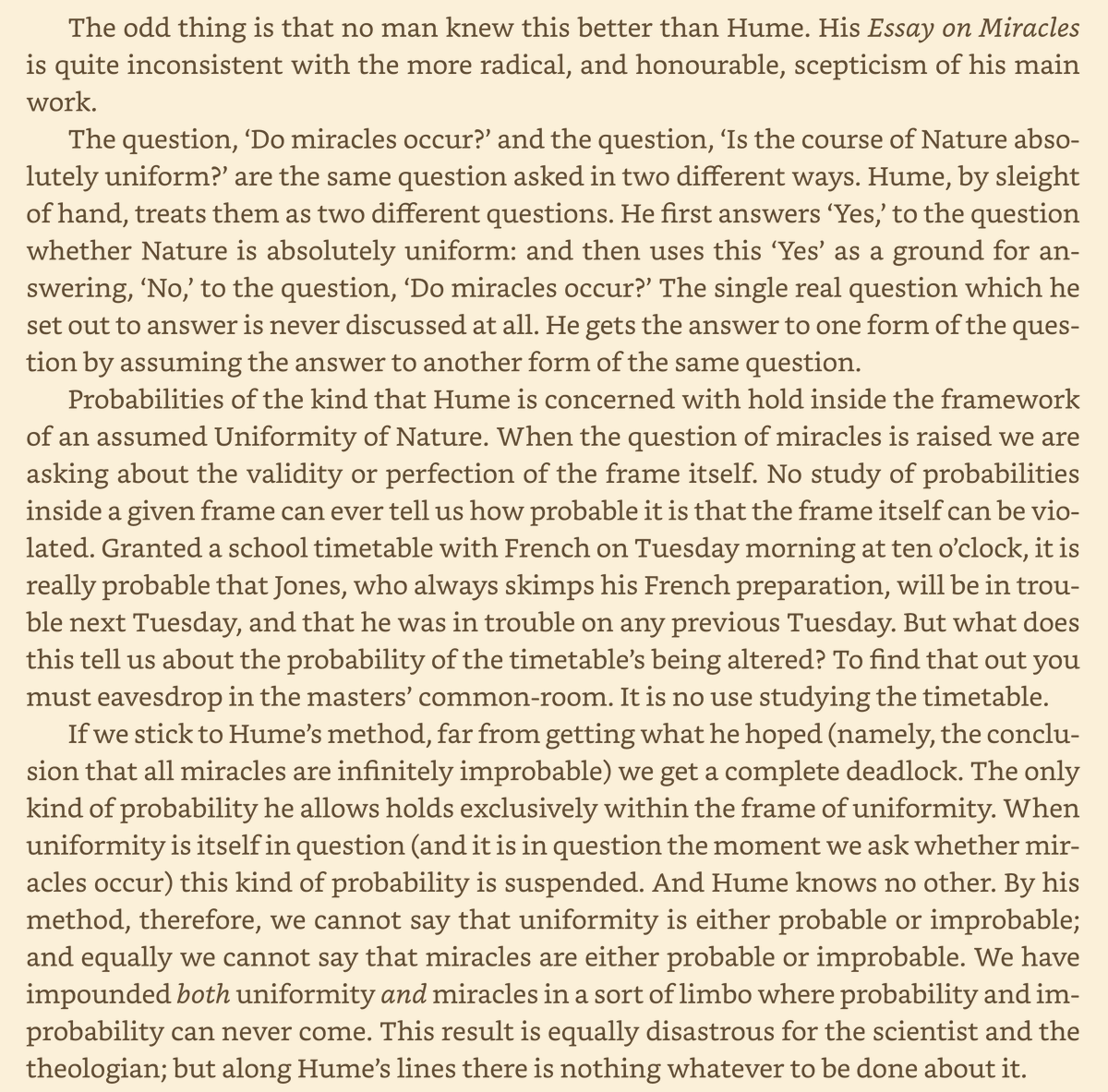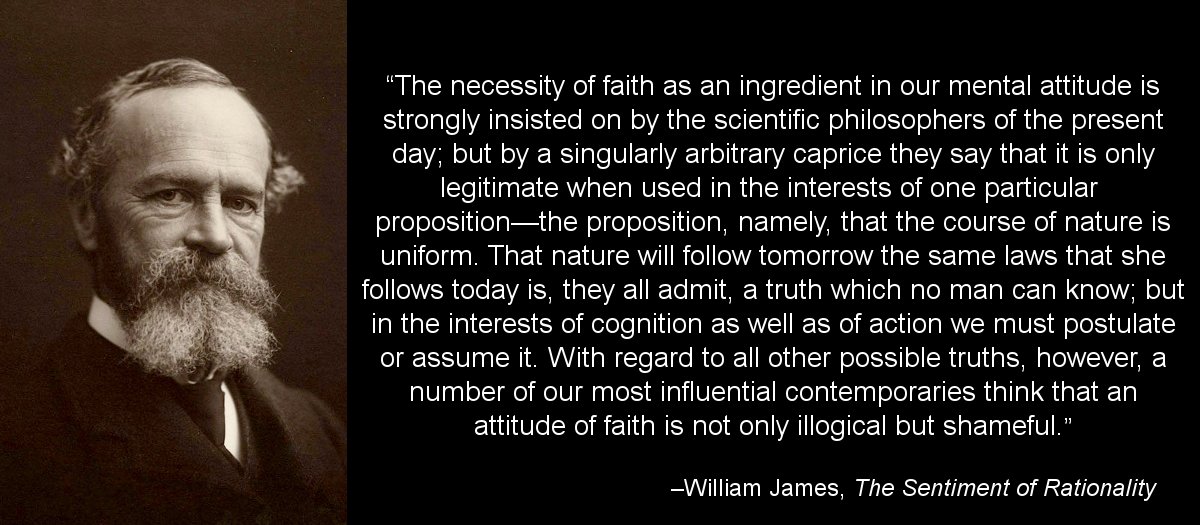Hume’s argument against miracles depends upon the principle of the Uniformity of Nature, a principle that Hume knows perfectly well he is—on his own grounds—justified in accepting.
William James rightly ridicules this sort of thing (although Hume was at least AWARE of it).
William James rightly ridicules this sort of thing (although Hume was at least AWARE of it).
James’ ridicule is directed at the people who accept the Uniformity of Nature as a pure article of faith—and then go on to condemn ALL OTHER articles of faith as irrational.
Just not theirs.
Never theirs.
Just not theirs.
Never theirs.
Now, whether a belief in the uniformity of nature is WARRANTED or not will depend on prior metaphysical conditions. Science needs this principle to function, and yet a naturalistic metaphysics—or worse, a skeptical one, like Hume’s—offers NO BASIS for the necessary principle.
The naturalist, who rails against irrational faith, and puts his trust in science, does so only on the basis of an irrational faith in the uniformity of nature.
On what basis would the uniformity of nature be a warranted belief, rather than an irrational prejudice?
On a theistic basis.
If nature is ordered by a law-giving God, we would expect it follows uniform laws. But this very BASIS for uniformity is ALSO the BASIS for exceptions.
On a theistic basis.
If nature is ordered by a law-giving God, we would expect it follows uniform laws. But this very BASIS for uniformity is ALSO the BASIS for exceptions.
We are warranted in believing that nature is uniform if we regard nature is an ordered whole created by God, to whose nature belongs such orderliness and lawfulness.
But this very warrant also warrants us in the belief that it need not be an UNBROKEN uniformity.
But this very warrant also warrants us in the belief that it need not be an UNBROKEN uniformity.
In other words, belief in God warrants BOTH the uniformity of nature AND the exceptional cases of miracles.
Naturalism, by contrast, warrants belief in NEITHER.
Naturalism makes trust in science unjustified (logically, not psychologically).
Naturalism, by contrast, warrants belief in NEITHER.
Naturalism makes trust in science unjustified (logically, not psychologically).

 Read on Twitter
Read on Twitter




